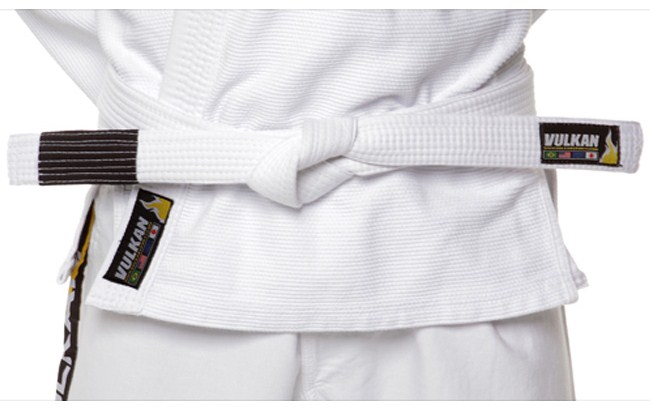Founded in 1994, GRACIEMAG is Jiu-Jitsu fighters’ favorite magazine, always serving up an original and useful section for taking their games to the next level. One of the sections causing a buzz these days is the White Page, with pointers for those just starting out on their martial arts path.
Refresh your memory of a recent one by Felipe Costa, and make sure you’re up to speed on all things Jiu-Jitsu in the future by subscribing to GRACIEMAG here.
1. Trust and be trustworthy!
NEVER hold a sub past the tapout. When in doubt as to whether your training partner has tapped, let go—better safe than sorry. By striving to be a more reliable training partner and trust your teammates and coaches, the environment becomes a safer and more pleasant place in which to learn. If you’re not having fun, none of it makes any sense. Jiu-Jitsu is something you carry with you for the rest of your life. Each stage should be great; after all, the art is the most wonderful addiction you could possibly have.
2. Brazilian Jiu-Jitsu is done in a gi.
As trendy as it is, make sure to have a good understanding of the techniques using cloth before venturing into “No-Gi”. It’s easier to adapt your Gi techniques to No-Gi than vice-versa.
3. Don’t ask black belts to roll.
You can train with black belts but make sure you’re invited. This tip is kind of old fashioned and is often resented by recently promoted students. It happens that the higher-ranked feel like they are being “challenged” a lower belt summons them to train. You have to realize that they know who is available just by the way the person looks at them. Look at them humbly and make it clear you’re available—if they want to, they’ll invite you. And take my word, it’s always more rewarding to roll when you’ve been invited than when you do the inviting.
4. Do your homework.
Students are often discouraged when their start in Jiu-Jitsu is less than ideal, so it would behoove the beginner to do some research before committing to a class, making sure the instructor they pick enjoys what he does and is kindly to all the students, not just his best ones. If after starting classes you get the feeling the instructors aren’t paying you enough attention, don’t accept that as being normal—it isn’t. A much better alternative to quitting is to switch to a gym where you feel welcome.
5. Have faith.
Believe in the techniques. As frustrating as it may be at first, try your best to defend by using the techniques already in your repertory. If you feel like you’ve run out of options, have a word with your instructor; he’ll be glad to get input on your needs.
6. Communicate.
One of the coolest things about Jiu-Jitsu is the exchange of ideas on how to perform a technique. Feel free to ask the more experienced students questions. Ask what you could have done to defend an attack or pull off that submission you were so close to getting. They’ve surely been through those situations before and can clue you in on all the ins and outs. Higher ranked students tend to enjoy being appreciated and get a kick out of being able to help.
7. Do your homework!
It’s frustrating to a teacher when they do their best to teach a new move or concept and short while later a student has already forgotten it. Doing lots of repetitions is essential, even if you feel a particular technique doesn’t fit your style. Keep in mind that as a beginner you don’t have a set style yet, so what seems useless to you today may turn out to be your greatest asset tomorrow. Besides doing repetitions, take a few minutes each day to go over the techniques in your head.
8. Tap out.
Nobody wants to see a student intentionally tap out but good students aren’t afraid to take chances or put themselves in positions of disadvantage. If you do tap, so be it; let it serve as a lesson. During moments of real danger, your chances of prevailing are all the greater when you’re accustomed to such harrowing situations.
9. Try new things!
There’s no point in sparring like you’re fighting in a final the whole time. Sure, there are times when you should go hard, but let your coach be the judge of when that should be. Generally speaking, I recommend always trying new things, putting the move of the day to practice. The more diversified your game is, the better the tools you’ll have at your disposal in the future.
10. Self-defense is of the essence.
There are plenty of teachers out there who are oblivious to the importance of teaching even basic self-defense techniques—some for lack of familiarity, others because they feel they moves are outdated. Down the road, self-defense techniques will provide you an understanding of moves you so far haven’t a clue about, not to mention they’re fun. Keep in mind that each of the current techniques, even the tournament-level techniques, in some way or another originated from the basics. Knowing and understanding the basics is like a lesson in history and will keep you from making basic mistakes.
The post Read GRACIEMAG and learn 10 Jiu-Jitsu tips for beginners first appeared on Graciemag.
